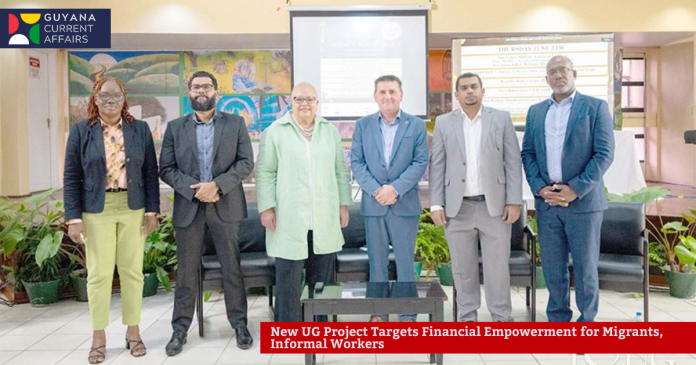The University of Guyana (UG) has launched a dynamic new initiative aimed at boosting financial empowerment among migrants and informal sector workers, two groups often left behind in traditional economic development programs.
Unveiled at the university’s Turkeyen Campus this week, the project—titled “Financial Inclusion for All”—seeks to bridge the gap between vulnerable populations and formal financial services. The program is a collaborative effort between UG’s Faculty of Social Sciences, local NGOs, and international partners, and is set to roll out across several regions over the next year.
Project coordinator Dr. Melissa Ramkissoon explained that the initiative was developed in response to the growing number of migrants entering Guyana, as well as the large segment of the workforce engaged in informal employment. “Access to banking, credit, and financial literacy is a major hurdle for many migrants and informal workers,” Dr. Ramkissoon said. “Without these tools, it’s difficult for them to save, invest, or even participate fully in the local economy.”
The project will offer a series of workshops, training sessions, and one-on-one financial counseling. Topics include basic budgeting, savings strategies, understanding credit, and navigating the process of opening bank accounts. In addition, the program will help participants connect with microfinance institutions and cooperative societies willing to work with non-traditional clients.
A key component of the project is digital literacy. With mobile banking and digital wallets becoming increasingly important, the initiative will provide hands-on training to ensure participants can safely and confidently use these technologies.
Local NGOs working with migrants and informal workers have welcomed the project, noting that it fills a critical gap in support services. “Empowering people financially means empowering entire communities,” said Sharon Joseph, director of a local migrant support group. “When people have the knowledge and tools to manage their money, they’re better able to build stable lives for themselves and their families.”
The University of Guyana’s new project is expected to benefit hundreds in its first phase, with plans for expansion based on the program’s success. Organizers hope the initiative will serve as a model for other institutions and countries facing similar challenges, ultimately contributing to greater financial inclusion and economic resilience nationwide.


